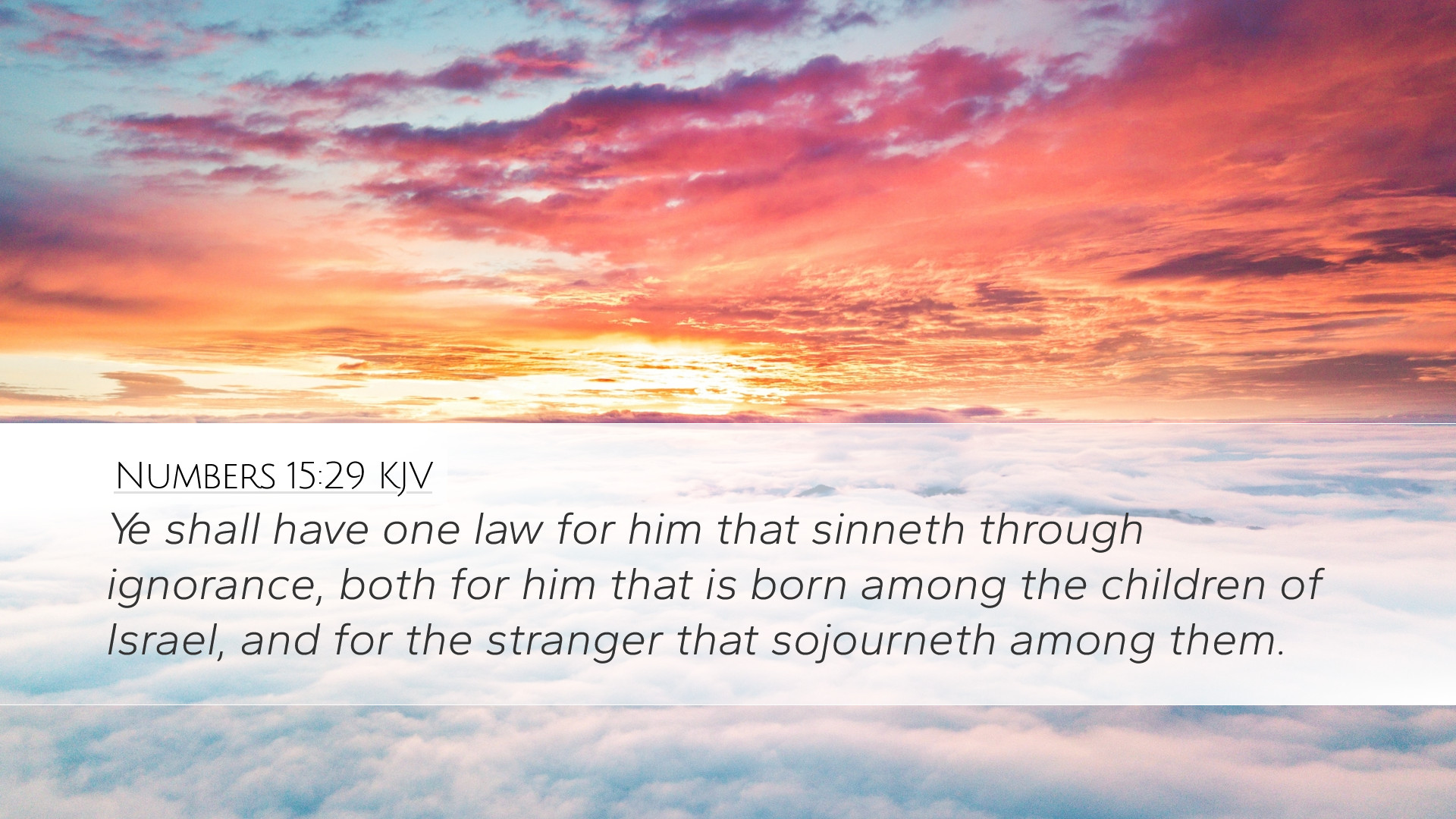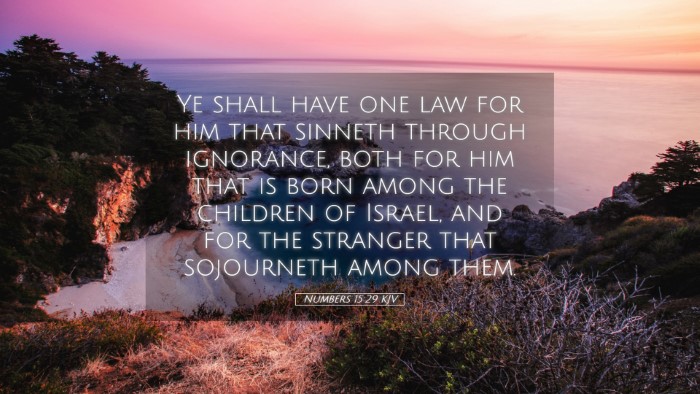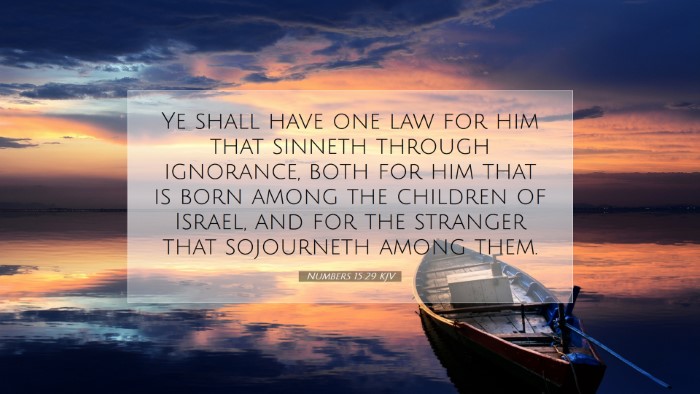Bible Commentary on Numbers 15:29
Verse Text: "You shall have one law for him who does anything unintentionally, for him who is a native among the children of Israel and for the stranger who dwells among them."
Introduction
The book of Numbers serves as a historical account of the Israelites during their wilderness wanderings. As we delve into Numbers 15:29, we uncover significant teachings regarding unintentional sins and the inclusivity of God's law. This commentary synthesizes insights from prominent public domain sources, providing various theological reflections and practical implications for pastors, students, theologians, and scholars.
The Context of Numbers 15:29
In Numbers chapter 15, God outlines laws pertaining to offerings, sacrifices, and the consequences of sin. Matthew Henry emphasizes the importance of understanding the character of sin, particularly the distinction made between intentional and unintentional transgressions. He notes that the Israelites, in their journey, would inevitably encounter situations where they might sin unknowingly. This raises the question of grace and mercy within the framework of the law.
Unintentional Sins Explained
Albert Barnes comments extensively on the nature of unintentional sins, explaining that there exists a difference between deliberate rebellion against God and errors made in ignorance. The law, by acknowledging unintentional transgressions, reflects God's commitment to justice while also showing His mercy. Barnes states that unintentional sin does not absolve one from the need for atonement but rather indicates that the offender deserves another kind of treatment as compared to one who sins with a high hand.
Inclusivity of God’s Law
This verse underscores the theme of inclusivity of God's law – a principle imparted by Adam Clarke, who highlights the equal application of justice to both native-born Israelites and strangers living among them. In essence, Clarke elucidates that God exhibits no partiality regarding His commandments. The provisions of the law are extended to everyone, effectively promoting a sense of community and shared responsibility among the people of Israel irrespective of their national origin.
Theological Reflections
Through the lens of Numbers 15:29, one can reflect on various profound theological themes:
- Grace and Justice: God’s provision for unintentional sins signifies that He is both just and merciful. His laws are not only meant to condemn but also to restore.
- Community Responsibility: The law applies equally to residents and foreigners, indicating that all individuals within a community are accountable for their actions.
- Hope for the Ignorant: This provision reassures those who may not fully understand God’s expectations that there remains a pathway to reconciliation.
Practical Applications
For pastors and church leaders, this verse can be utilized in teaching about accountability and the importance of understanding sin. Key applications include:
- Encouraging congregants to seek knowledge and wisdom in their spiritual journey, thereby reducing instances of unintentional sins.
- Promoting a sense of community where individuals support one another in adherence to God's law.
- Fostering an environment where grace is offered to those who err unintentionally, allowing for growth and restoration.
Conclusion
Numbers 15:29 provides rich insights into God’s nature and His law through the dual lenses of justice and mercy. This verse holds timeless relevance, urging readers to reflect on their spiritual walk and the community they create with others. As theologians and biblical scholars analyze this passage, they are reminded of the importance of knowledge, grace, and inclusivity within God's covenantal promises.


